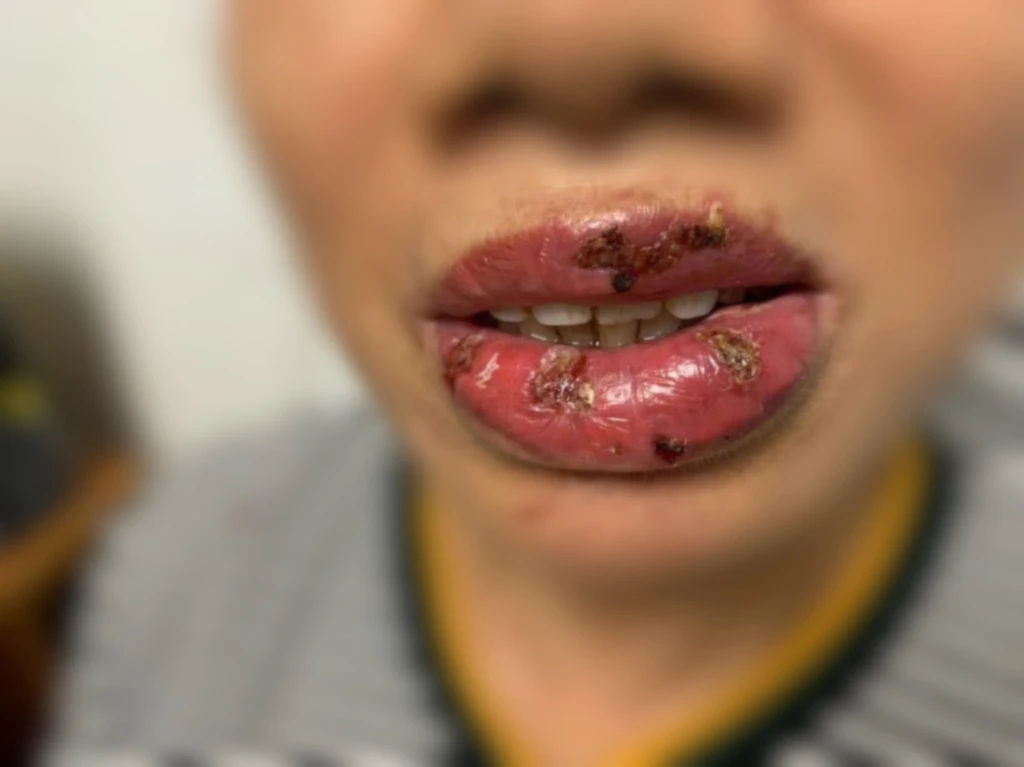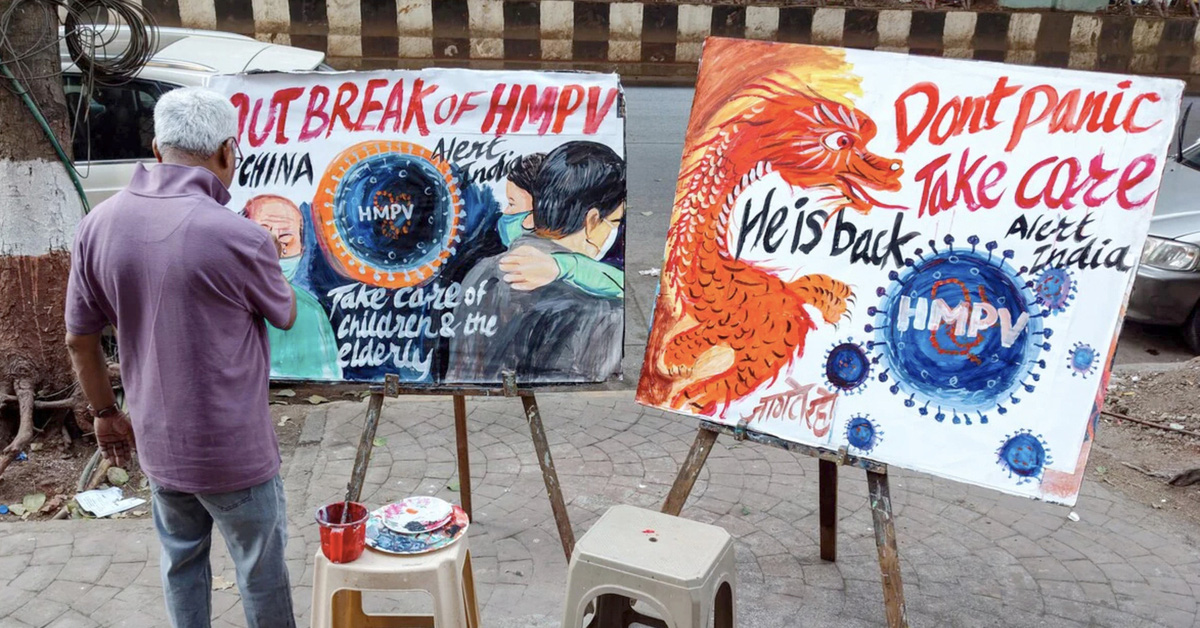The patient said that after 5 days of lip tattooing, blisters appeared on her lips, secretions, tension, and burning sensation, so she bought medicine to apply. After changing many different types of medicine, the condition did not improve. At Phu Tho Provincial General Hospital, after examination, the doctor diagnosed the patient with infectious dermatitis due to lip tattooing.

The patient came to the clinic with swollen lips, crusting, pain, and bleeding when touched.
Dr. Phi Thi Minh Hue, a doctor at the Dermatology Department of Phu Tho General Hospital, said that lip tattooing is a popular beauty service used by many women. This is an easy and quick beauty method, but there are also health risks that women need to know clearly before proceeding. Improper lip tattooing techniques and unsterile tools can cause blood-borne diseases such as HIV, hepatitis B, etc.; and complications can include swelling, bleeding, blisters, abscesses (pus formation), permanent scarring, etc. In addition, tattoo ink can also cause allergies, even anaphylactic shock, in people with allergies.
For safe, effective and healthy beauty, doctors recommend that people go to reputable cosmetic facilities, licensed by competent authorities, with a team of experts and doctors with full practice certificates. People should request sterilization of tools and change of tattoo needles before performing to minimize possible risks. Do not tattoo your lips if you are at risk of being allergic to the ingredients in the tattoo ink.
After tattooing, avoid direct sunlight and keep the area clean. When going out, cover the tattooed area carefully. If you experience any symptoms such as itching, redness, swelling, difficulty breathing, chest tightness, dizziness, abdominal pain, etc., go to a reputable medical facility immediately for timely treatment.
Tattooing and tattooing establishments need to ensure safety and sterilization of tools; choose specialized tattoo ink in the beauty industry. Do not choose cheap ink, ink containing iron oxide, mercury, lead exceeding the permitted level because it can affect the lungs, liver and immune system, even cause cancer.
Source link



![[Photo] Military doctors in the epicenter of Myanmar](https://vstatic.vietnam.vn/vietnam/resource/IMAGE/2025/4/6/fccc76d89b12455c86e813ae7564a0af)



![[Photo] Prime Minister Pham Minh Chinh chairs the regular Government meeting in March](https://vstatic.vietnam.vn/vietnam/resource/IMAGE/2025/4/6/8393ea0517b54f6791237802fe46343b)




















































































Comment (0)